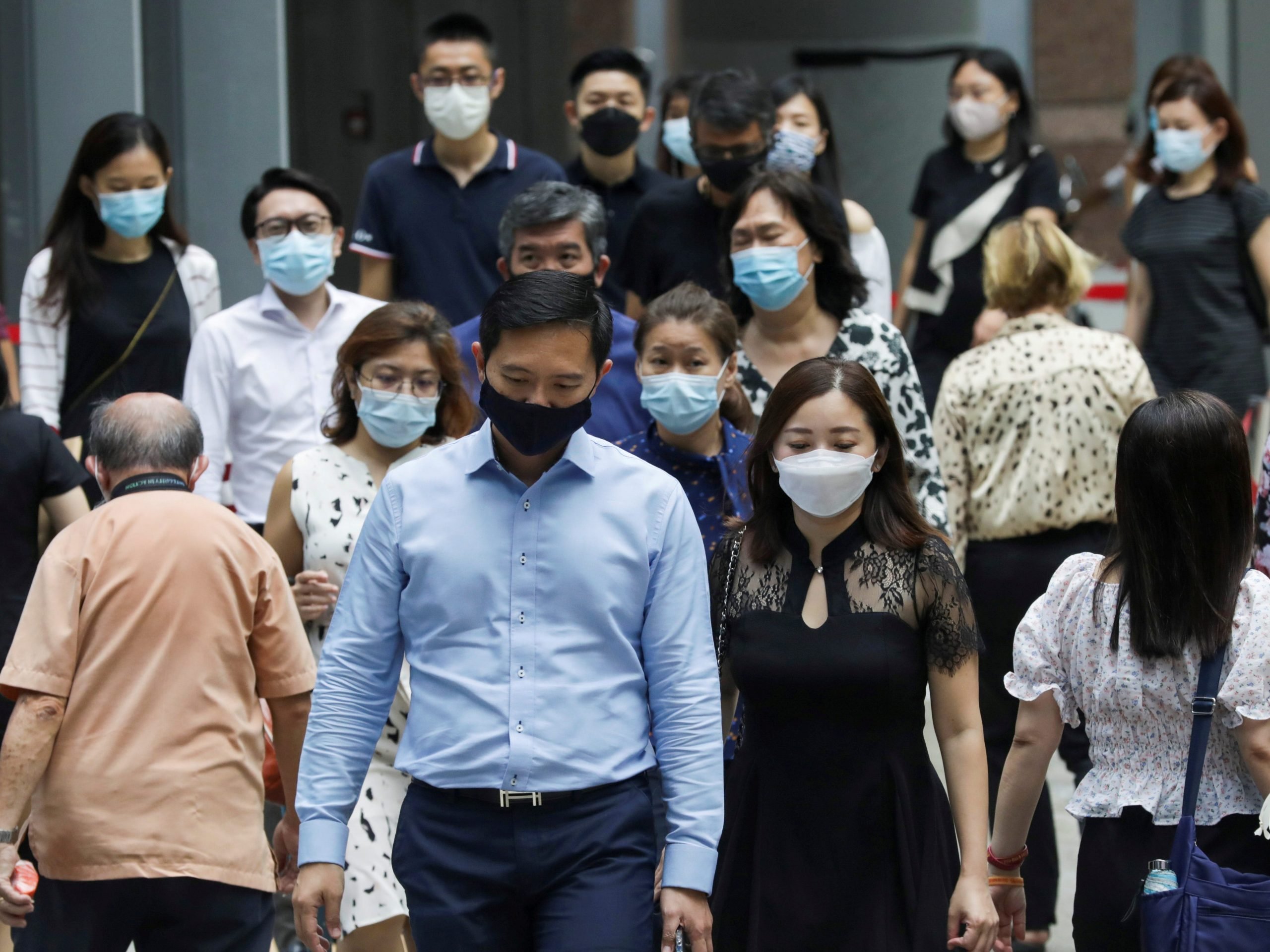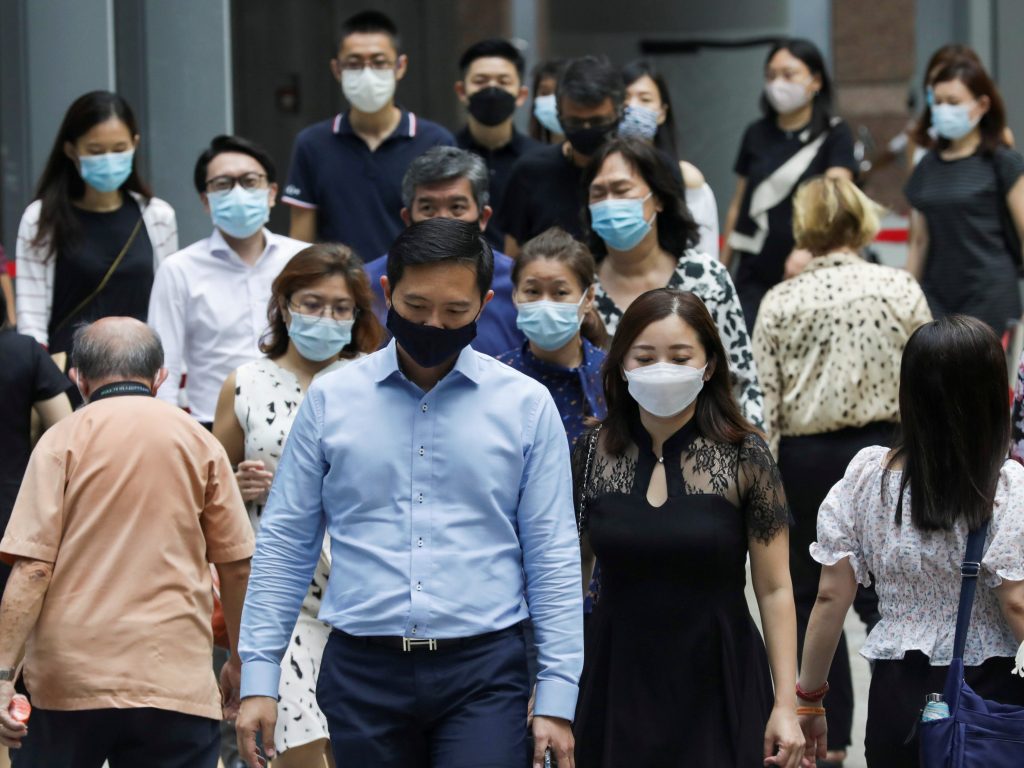
Dawn Chua/Reuters
- Singapore has seen a surge in unlinked COVID cases and a jump in locally transmitted infections.
- It was one of the world's safest places to be just two weeks ago, but it will begin a quasi-lockdown on Sunday with restrictions similar to what was in place last summer.
- The head of Singapore's COVID task force said this week that the country was on a "knife's edge."
- Visit Insider's homepage for more stories.
Just two weeks ago, Singapore was the place to be during the pandemic – with negligible COVID transmission levels within the community. But the island state will impose restrictive measures meant to curb the spread of COVID starting Sunday due to a sudden surge in unlinked community-transmitted cases carrying the deadly B1617 variant.
An alert from the Singapore health ministry on Friday noted that the country recorded its highest number of new daily COVID cases since January 30, with 52 new COVID-19 infections – including 24 in the community. Of these cases, 14 were unlinked – a troubling number, considering the country's relative success with contact tracing.
In a news conference on Friday afternoon, Lawrence Wong, head of the country's COVID task force, said that new limits would be set in place for one month, from Sunday, May 16 to June 13. This includes a ban on dining out and strongly regulated safe-distancing measures.
From May 16, under what Singapore's health authorities are dubbing a "heightened alert," people will only be able to move around the island in groups of two, down from a maximum of eight. Wong added that work from home must be the default mode for all staff, and activities like wedding receptions and indoor sports classes should be postponed or canceled.
"We need to act decisively to disrupt the virus transmission. We will, therefore, further tighten safe management measures in the community," Wong said on Friday.
"If everyone cooperates and we all do our part, we will be able to bring down the latest clusters and cases and bring the infection under control," he said.
Singapore had been hailed as a success story in how best to handle the pandemic due to its low infection numbers for the bulk of the pandemic. But several infection clusters popped up at hospitals and transport hubs, with unlinked cases surfacing in the community in late April. This included a major cluster of 46 cases at Changi Airport Terminal 3, which prompted the local government to close Changi Airport's terminals and its Jewel shopping center to the public for two weeks. Mass swab-testing of airport workers and hospital staff is now underway.
These new measures to stop the surge come just three days after Wong made a speech in Singapore's parliament, saying that Singapore was on a "knife's edge" where COVID transmission within the community was concerned.
"We have a chance of getting things under control by the end of the month. But as we know from experience, it only takes one lapse or one irresponsible action for an infection to happen; and that infection may end up being a super-spreader event in the community," Wong said on Tuesday.
Singapore emerged from its lockdown - known locally as a "circuit breaker" - in June last year. The country has executed a cautious but progressive reopening since then, which saw everything but essential services shut down for almost two months.
Reuters also reported that the stock market took a tumble after the new measures were announced, as the Straits Times Index and Singapore Airlines' stock price went to its lowest the market has seen in the last two months.
As of press time, Singapore has recorded a total of 61,505 cases and 31 deaths.
